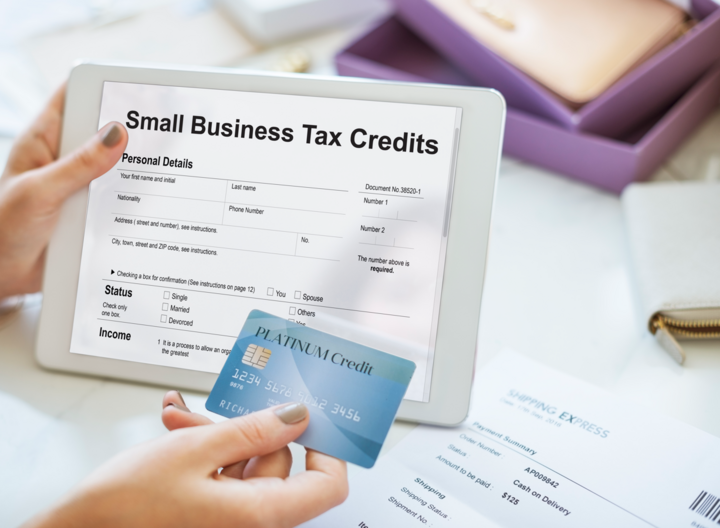How many times do you find yourself charging your credit card for inventory, or supplies when you know you won’t be able to make the full payment?
Covering costs during a global pandemic as a small business owner has become tricky. You still need to purchase inventory, but deliverables are different, and making up for the loss in revenue has you scrambling to charge your card and worrying about managing those expenses later.
You are spending your days focused on how to 'Covid-proof' your business and it takes up all your time. That’s the reason why we all love credit cards; they allow us to “buy now and pay later”.
You don't worry about ordering DoorDash on late-night creative brainstorms, it's just convenient. In the process of brainstorming about your own deliverables, you have better things to focus on with this drastic change in the market.
In fact, you don’t even check how much money you have in your bank account – just pay the minimum amount due on the card every month. That way you can delay the full repayment for as long as you want, without any consequences…right?
The pandemic marketplace makes it easy to swipe that credit card and ignore the consequences, but if that is how you think, it can come back to bite you later.
When you carry a balance on your card, you need to pay at least the minimum due each month if you want to stay in the issuer’s good graces. But know this - by continuing this strategy indefinitely, you can seriously damage your credit score.
Pay at Least the Minimum Due Each Month
Credit card issuers set the minimum due amount at rock bottom levels. It is usually a fixed amount (say $25) or a percentage of your balance, whichever is greater. Depending on your card issuer your minimum amount may be as low as 1% or 2% of your balance plus any interest or fees that are due.
When you consistently pay the minimum amount on time each month, you avoid incurring late fees. Credit card issuers like to see that you can be consistent. It reflects positively on your payment history.
This is crucial to a healthy credit report because payment history contributes towards 35% of your credit score.
Long Term Impact of Minimum Payments on Your Credit Score
Emergencies do happen. Unexpected expenses and marketplace mishaps may place you in a financially difficult position until you get back on your feet.
Whatever the case may be, know that minimum payments come in handy because they divert your funds towards more urgent requirements.
As mentioned earlier, if you make minimum payments on time, your payment history will remain positive and help build a good credit score.
The amount of your last credit card payment is listed on your report, but it doesn’t impact your credit score calculation. If you are temporarily short on cash, it won’t matter if you pay the minimum due for a few months.
Benefits of Paying the Minimum Due on Your Card End Here
Making minimum payments consistently over a long period of time will result in significant problems. When you pay just the minimum due, you don’t make any substantial progress towards paying down your existing balance.
If you continue using that card to make purchases your card balance climbs, raising your credit utilization ratio.
A credit utilization ratio is defined as the proportion of available credit utilized and contributes towards 30% of your credit score. As this ratio increases, your credit score declines.
The longer you carry a balance, the more interest charges you rack up. Your financial health will go down the drain and getting out of debt will be more and more difficult. So much so, that after a certain time, you may even have to file for bankruptcy.
Also, understand the amount of your last payment may not be included in credit score calculations. It can have an impact on your borrowing abilities.
Prospective creditors may go over your credit report to decide whether they should lend to you or not. When they see your high outstanding balance, coupled with paying very little towards that debt each month, they may view you as a significant risk and reject your application.
To summarize, paying just the minimum due on your card keeps your payment history positive, helping your credit score. But paying the minimum due as a long-term strategy can result in a high credit utilization ratio. No matter how easy it is to automate a minimum payment each month, and simply swipe your card, this is not the way to go.
Paying the minimum balance can be used when necessary, but in the long term, it will prove toxic. It pulls your credit score down, and the high outstanding balance also sends warning signals to prospective lenders.
$50,000 - $250,000 at 0% Interest
At Fund&Grow, we help clients with good credit obtain $50,000 - $250,000 of unsecured business credit at 0% interest.
Available for a period of 6, 12, or 18 months, this amount can be used for anything – from funding a small business to providing a down payment on a property.
If you know someone who needs this sort of financing, have them call us at (800) 996-0270, and we will help them out right away.
Popular Posts
Instantly Pre-Qualify
Want Actionable Information, Tools and Resources To Quickly Acquire Business Capital, Credit and Funding?
I take tremendous pride in building positive and lasting relationships in my businesses and personal life. Every member of my team is committed to helping our clients get the maximum amount of funding possible and achieve their highest growth potential.



 Share
Share









